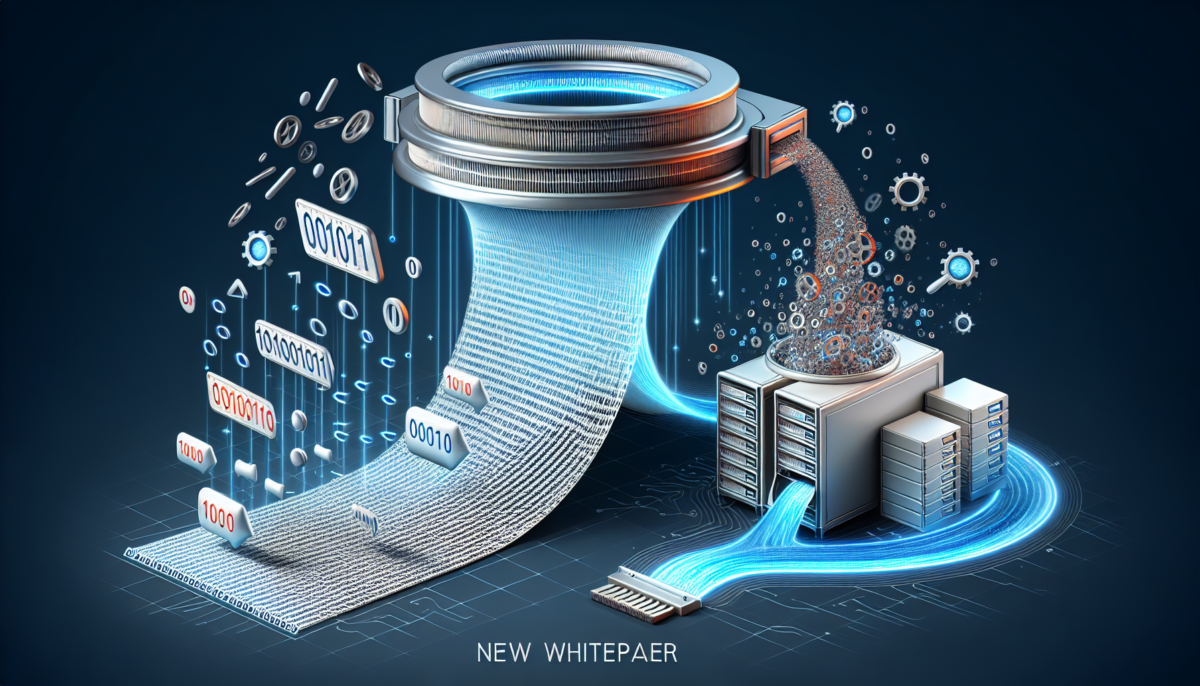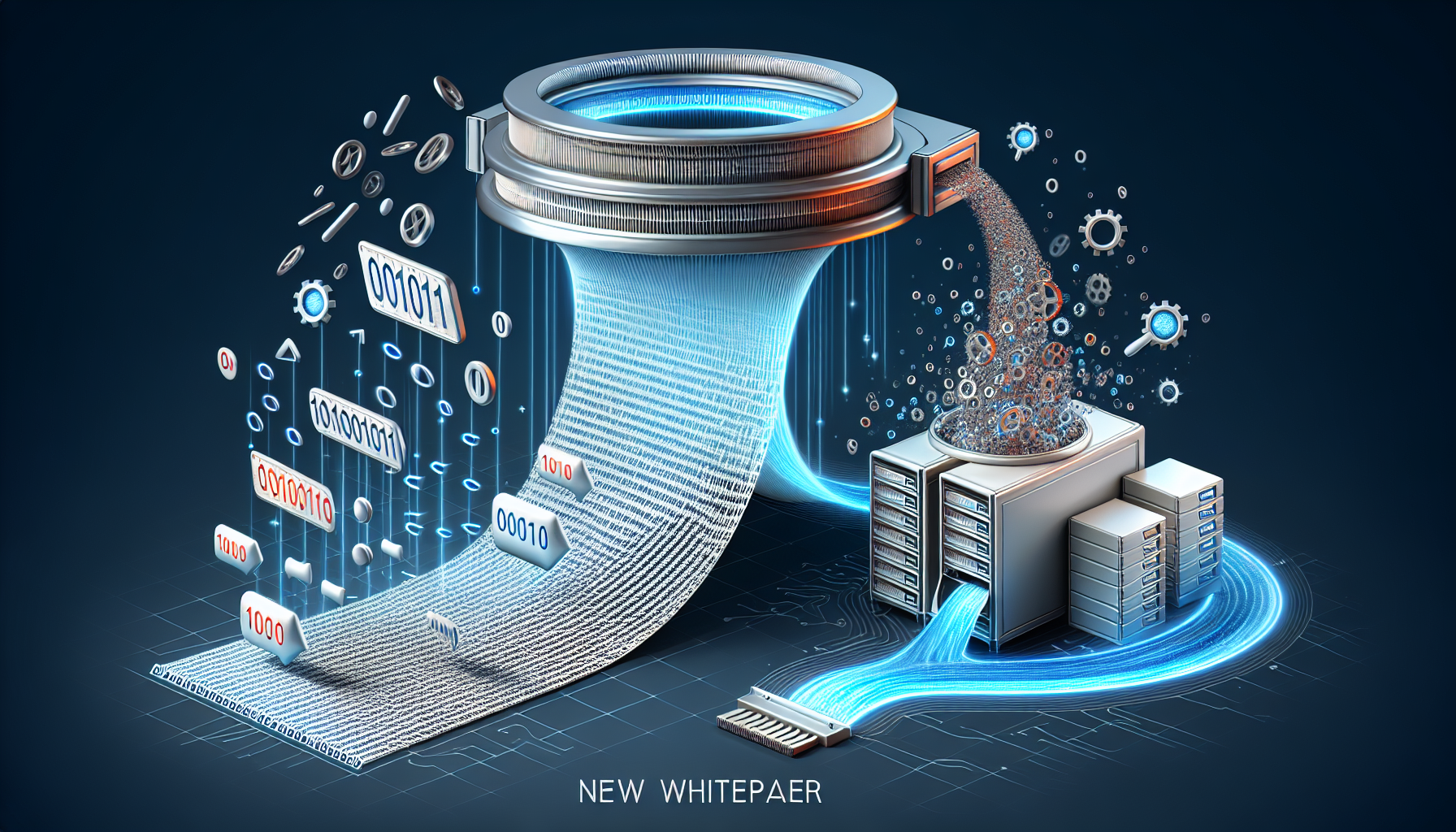New Whitepaper Reveals the Essential Importance of Managed File Transfer in Achieving Successful Data Migration
We independently review everything we recommend. When you buy through our links, we may earn a commission which is paid directly to our Australia-based writers, editors, and support staff. Thank you for your support!

The Essential Significance of Managed File Transfer in Achieving Data Migration Success
Quick Overview
- 87% of IT leaders anticipate their data environments will become increasingly distributed in the next two years.
- Conventional FTP no longer meets the requirements for secure and automated file transfers in the contemporary cloud-focused business environment.
- Managed File Transfer (MFT) delivers improved security, compliance, and automation for the movement of data across various locations.
- MFT solutions such as Progress® MOVEit® uphold compliance with regulations like PCI-DSS, HIPAA, GDPR, and SOC 2.
- Significant advantages of MFT include scalability, accelerated transfer speeds, tamper-evident logging, and enhanced user control.
- Businesses should utilize MFT to lower expenses, preserve data integrity, and streamline their operational processes.
The Importance of Managed File Transfer for Future Success
As entities progressively transition towards a distributed data framework, the demand for swift, secure, and automated file transfers has reached an unprecedented level. Recent studies by TechTarget’s Enterprise Strategy Group indicate that 87% of IT decision-makers predict their data and application environments will become more distributed within the next two years. This evolution introduces new data management challenges, necessitating technical solutions that can address escalating complexities.
Traditional FTP Is Insufficient
The emergence of cloud-centric environments has made traditional File Transfer Protocol (FTP) inadequate for many organizations. FTP lacks the essential security measures, automation, and scalability required for modern data needs. Especially for companies with limited IT resources or those handling sensitive information, the vulnerabilities associated with FTP are becoming increasingly risky. In today’s regulatory landscape, where adherence to standards like GDPR, PCI-DSS, and HIPAA is paramount, depending on FTP can expose businesses to potential security breaches and legal repercussions.
Managed File Transfer (MFT): A Robust Solution
Managed File Transfer (MFT) solutions, such as Progress® MOVEit®, offer the security, automation, and scalability that contemporary organizations need to effectively manage their distributed data setups. Unlike FTP, MFT is equipped with features such as audit trails, user-permission management, and encryption, rendering it a more secure and reliable file transfer option. The whitepaper notes that MFT substantially mitigates risks related to data movement by providing greater visibility and enhanced security measures, including tamper-evident logging and integrity verification.
The Advantages of MFT for Regulatory Compliance and Scalability
One of the most remarkable features of MFT solutions like MOVEit is their capacity to assist organizations in fulfilling rigorous compliance demands. Whether concerning PCI-DSS, HIPAA, or GDPR, MFT solutions are structured to ensure that your data transfers align with crucial legal and regulatory standards. This becomes particularly significant as data ecosystems grow more intricate and span multiple locations, making a secure and compliant data transfer strategy essential.
Streamlined Automation and User-Friendly Management
The whitepaper emphasizes how MFT software optimizes file transfer management. With integrated automation functions, MFT alleviates administrative responsibilities, enabling even organizations with limited IT personnel to handle complex data workflows effectively. Progress® MOVEit® simplifies deployment, allowing businesses to easily establish and manage secure file transfer systems without necessitating extensive technical expertise.
Increased Speed and Enhanced Reliability
As data quantities surge, the demand for swift and dependable file transfers becomes critical. MFT solutions are designed with scalability at their core, providing reduced transfer times and the ability to manage large data volumes across various locations. This is particularly vital for organizations that must synchronize data among different cloud platforms, data centers, and remote locations.
Why Every Business Should Explore MFT
The conclusions drawn from the whitepaper underscore a vital point: Managed File Transfer is not merely a desirable feature; it is crucial for businesses aiming to expand their operations while ensuring security and regulatory adherence. By implementing MFT technology, organizations can minimize the risks and costs tied to data transfers, securing data integrity and refining business operations.
For those interested in delving deeper into MFT, solutions like Progress® MOVEit® provide a comprehensive array of tools designed to simplify data movement, fortify security, and uphold compliance.

Conclusion
In conclusion, as data environments grow increasingly distributed and intricate, the necessity for secure, scalable, and automated file transfers is paramount. Managed File Transfer solutions such as Progress® MOVEit® afford organizations a means to navigate this complexity while ensuring compliance and minimizing risks. With features like audit trails, user management, and encrypted transfers, MFT is an indispensable asset for any organization aiming to optimize its file transfer strategies.
Q&A Overview
Q: What is the primary benefit of Managed File Transfer compared to traditional FTP?
A:
Managed File Transfer (MFT) provides heightened security, automation, and scalability, whereas traditional FTP fails to include encryption, audit trails, and user-permission management, making it less secure and reliable for modern data environments.
Q: Why is MFT becoming increasingly important for businesses?
A:
As data environments spread across multiple locations and cloud infrastructures, MFT offers essential tools for managing, automating, and securing file transfers in response to the rising complexity of data movement.
Q: How does MFT contribute to meeting regulatory standards?
A:
MFT solutions like Progress® MOVEit® guarantee that file transfers comply with regulations such as PCI-DSS, HIPAA, GDPR, and SOC 2 by incorporating features such as encryption, tamper-evident logging, and audit trails.
Q: Can MFT enhance operational efficiency?
A:
Absolutely, MFT automates file transfers, reducing the necessity for manual involvement, thus conserving both time and resources. It also provides quicker transfer rates and accommodates large data volumes, enhancing overall operational efficiency.
Q: What types of businesses should consider implementing MFT?
A:
Any entity that manages sensitive information, must adhere to regulatory compliance, or operates in a distributed framework should explore MFT. This includes sectors such as healthcare, finance, and retail, where secure and compliant data transfers are essential.
Q: Is implementing MFT challenging?
A:
No, MFT solutions such as Progress® MOVEit® are crafted to be user-friendly and include automation features that ease the process of deployment and management, even for organizations with limited IT capabilities.
Q: How can I initiate the process of using MFT?
A:
You can investigate MFT solutions like Progress® MOVEit® by visiting their website and requesting a free trial. This will enable you to evaluate the platform’s features and determine how it can address your organization’s file transfer requirements.
